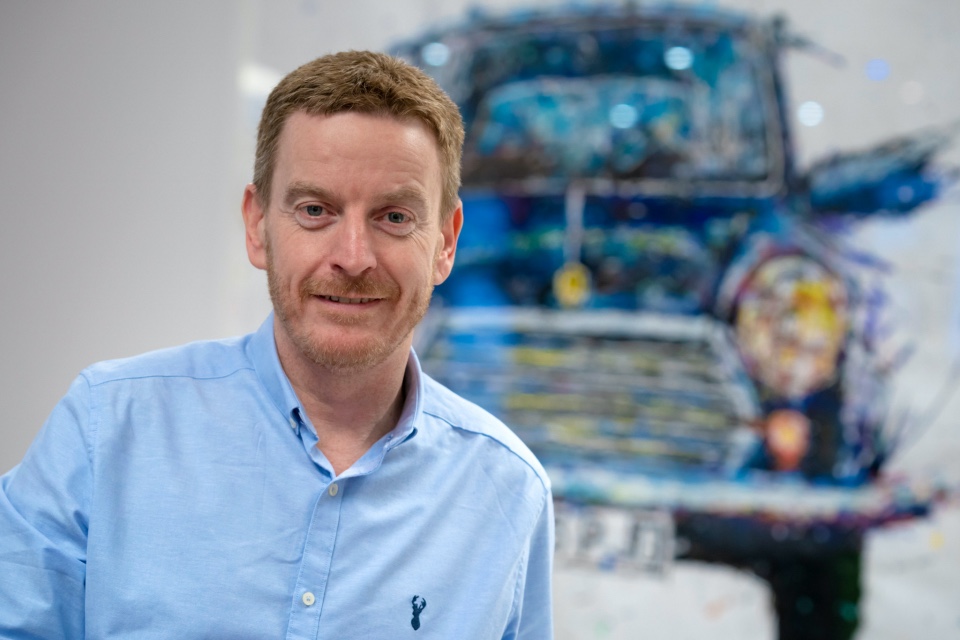Reflections on 2020 and Predictions for 2021
https://energymanagementsummit.co.uk/wp-content/uploads/2020/11/CarlEnnisCEOSiemens-2.jpg 960 640 Guest Post Guest Post https://secure.gravatar.com/avatar/cb2a67f15cd7d053d8e638a1df3fd67f?s=96&d=mm&r=gBy Carl Ennis (pictured), CEO Siemens and Smart Infrastructure, GB&I
Since becoming CEO in December, most of my life has been dominated by Covid-19. But despite causing many difficulties, the pandemic has brought some good. It has accelerated the pace of change and given us valuable insights into where – and how – we will work in the future, the skills we will need, and the environmental challenges we face.
It has also provided distraction from Brexit, which I hope will move the discussion away from its rights and wrongs to focus on how the country can maximise any opportunities in the year ahead.
In the new future many people will continue to work from home if they can do so effectively, while offices will become places to meet. At Siemens, like much of the UK business community, we have found that intercontinental flights and getting together in person is not as essential as we thought. We now run strategy workshops and town halls online, and even festivals where we engage with all our employees. I predict that these ways of communicating with each other and groups of people will continue.
One of the many benefits of this working model is accelerated decarbonisation, which we urgently need. Our economy was almost crippled during the first lockdown, yet CO2 emissions reduced by just 20% and NOX by 40%. Strategies to increase decarbonisation will be central to discussion at next year’s UN Climate Change Conference, COP26, in Glasgow, in which I hope President-elect Biden’s administration will play a crucial role. Having the US agree that climate change is a real risk, with its scale and ability to influence global policies, will help the world address the issue.
My worry for the UK is that in the government’s enthusiasm to kick-start the economy, we will do what is easy or cheap rather than what is right. But instead of trying to generate short-term jobs we must “grow back green” and invest in long-term jobs that help decarbonise.
The government is also focused on identifying a couple of big things it can do to achieve the decarbonisation targets. These large-scale projects, such as investing in wind power and hydrogen, are important. Wind power is already generating more than 20% of the UK’s electricity, and hydrogen has huge potential for fuelling vehicles and trains and for replacing natural gas in home heating systems and industrial turbines.
But local initiatives are also essential if we are to meet our net zero carbon targets. That’s why Siemens has been helping local enterprise partnerships (LEPs) and local governments address energy challenges in transport, industry and infrastructure. Individuals need to get involved too. The old adage of environmentalists is “reduce, reuse, recycle.” Reducing consumption requires all 66m people in the UK to participate.
I believe the shock that the virus has delivered to our economy will speed up digitalisation across industry. We will build a digital environment which will become central to everything we do. Unfortunately it will be painful for many sectors and businesses, but in the mid to long term it will be positive. History shows that when countries go through industrial revolutions there are winners and losers, but overall in the end everyone’s a winner.
We know that our businesses will be very different 10 years from now. A statistic that always astounds me is that 80% of the employees that we will have in 2030 are with us today. So while entry-level skills for apprentices and graduates matter, the existing workforce will need to re-skill too.
Adult learning is crucial and has gone unaddressed in the UK for too long. Covid-19 and Brexit have reinforced the need for us to develop and change our skills. This is not just about technical expertise — soft skills and vocational work will become increasingly necessary.
The fact that the virus pushed Brexit down the hierarchy of news was probably helpful. Anybody who’s been involved in negotiating a big deal knows you don’t want to do it on a public stage. The challenge is how to unlock the benefits people wanted without causing damage in the short term for individuals, society and business.
The negotiating teams have been trying hard to do that, and while time is short, most deal-making is done in the eleventh hour, so I remain hopeful. The gap between both sides is probably quite narrow, but a deal is essential for stability. Anything that goes above WTO arrangements will be positive.
President-elect Biden has been clear on his desire that the UK government does not implement changes that destroy the Good Friday agreement. We must not put that at risk. My father was from Dublin so I know first-hand how important the island of Ireland is to the Irish and our shared culture.
It’s going to be tough. From a business perspective, erecting barriers to trade is never a good idea. Brexit is likely to result in friction between us and our biggest trading partner, mainland Europe. That will present a challenge, but we’ll have to make the best of it. Luckily, as a nation we’re pretty good at triumphing over adversity and our business people are entrepreneurial.
Meanwhile, Brexit hasn’t stopped Siemens investing in the UK. In Hull, we partnered with Associated British Ports in a £310m investment to build a wind turbine blade manufacturing facility creating 1,000 jobs. And now we are spending £200m in Goole on a train facility to build the next generation of underground trains with 700 new jobs.
We still see the UK as a vibrant place and will continue to invest. While we would rather the added level of complexity of Brexit wasn’t there, it’s not stopping us from doing business.
But it will make life difficult for those of our suppliers and partners with vertically integrated supply chains in continental Europe and those who are trying to sell their products there. A brave person might make predictions about where they will be in a year’s time. But I will put my crystal ball aside for now.




